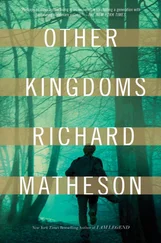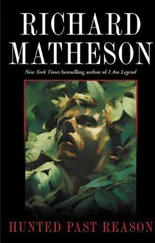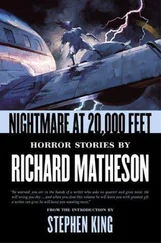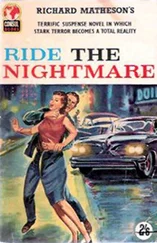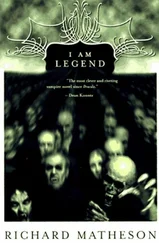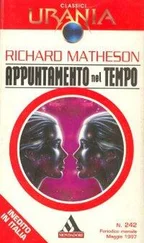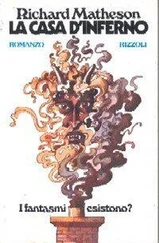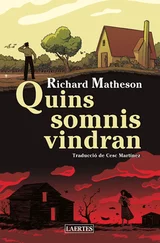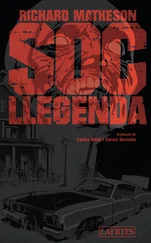“But I don’t believe you realize, son,” said Matthew Coles, his voice a steady, coercive flow. “This is a very serious matter. I couldn’t talk about it at the table because of your mother and your younger brother. It’s not the sort of subject men discuss over a family supper table.”
Now his father’s arm was around his shoulders and, as they ambled slowly toward the stable, Robby could feel his stomach muscles trembling and he had to clench his hands to keep the fingers steady.
“Son,” his father said, “there are certain things a man must face in this life. I don’t say these things are just or fair . . . or even reasonable. But they’re a part of our life and no man can avoid them.” Matthew Coles paused for emphasis. “And the most important of those,” he said, “is that a man defend his home and defend his family.”
But she’s not my family. Robby wanted to say it but he was afraid to.
“I . . . want to do what’s right,” he said instead, his throat feeling dry and tight, the gun at his waist seeming very heavy. He wished he hadn’t taken the gun with him. What if he ran into John Benton and Benton had a gun on too?
“Of course, you want to do what’s right, son,” said Matthew Coles, nodding. “You’re a Coles and the men of our family have always done what’s right—what has to be done.”
They were in the darkness of the stable now. Robby could smell the odor of damp hay and hear the soft stamping of the two horses in their stalls. He heard his roan nicker quietly and it made him swallow nervously. I’ll ride you when I’m ready, he thought belligerently as if the horse had asked to be ridden toward town, toward the possibility of meeting Benton.
“Sit down, son,” Robby heard the firm voice of his father say. Weakly, he sank down on the wooden bench and his father sat down beside him, arm still around Robby’s lean shoulders.
His father’s voice kept on, seeming to surround Robby in the cool, damp-smelling blackness of the stable.
“I know that, strictly speaking, Louisa Harper is not yet a part of our family. And, if there were men folks alive in her family now, I would say no more. It would be their responsibility to defend her honor.”
Honor. Honor —the word thumped dully in Robby’s mind as he stared straight ahead, listening.
“However,” said Matthew Coles, “there are no men left in the Harper family. There are no men left in the Winston family which was the family that Louisa’s mother was born to.”
I know all that, Robby thought, trying hard not to shiver. He said quietly, “Yes, sir.”
“And because there are no men in Louisa Harper’s family, the responsibility must shift itself to you. Since the young lady is your intended bride, you are the only one who can defend her name.”
Silence then. Robby felt his father’s hand pat once-twice on his shoulder as if to say—You see then, it’s settled, now go out and shoot John Benton.
“But . . . well, I . . . what about what I said to Benton?” Robby asked.
“Your conversation with Benton, you mean?” his father said, without expression.
Robby’s throat moved quickly. “Well . . . it was more than just a conversation, sir. I told him in . . . in no uncertain terms that if he didn’t leave Louisa alone, I’d—”
“ Son ,” Matthew Coles interrupted in a slow, firm voice, “the damage has been done. This is not a situation which can be settled by talk. John Benton attempted to arrange an immoral meeting with your intended bride. Son, the facts are clear.”
“But, Louisa didn’t say—”
“Sir?”
Robby felt his throat muscles tighten at the slight but very certain stiffening in his father’s voice. But he knew he had to go on or he’d be cornered and defenseless.
“Sir, Louisa didn’t say that Benson tried to arrange an . . .” he swallowed, “an immoral meeting.”
“Son,” his father said, almost sadly it seemed, “you are a grown man, not a child. For what purpose do you suppose John Benton requested a meeting?”
Robby drew in a ragged breath; answerless.
“There is only one question involved here,” Matthew Coles completed his case, “and that is—do you mean to defend the honor of your intended bride or do you mean to let yourself be judged a coward—for, believe me, sir, you will be judged a coward and the meanest sort of coward—a man who will not stand up for his woman.”
Robby’s head sank forward, his heart beating heavily, his hands pressed tightly together in his lap.
“I want to do what’s . . . what’s right, sir,” he said huskily. “But—”
“Of course you do,” his father said, arm tightening around Robby’s shoulder. “Of course you do, sir.”
Abruptly, his father was up on his feet, looking down at Robby.
“I will leave the working out of this to you,” he said. “You are a man and a man must do things his own way.”
Robby tried to say something but he couldn’t.
“I would suggest, however,” said his father, “that, for tonight anyway, you leave your gun at home. For if you should run into John Benton and he be armed . . .”
Robby shivered in the darkness, his body slumped on the hard wooden bench. His stomach hurt again.
“You’re not in good physical form tonight,” his father continued. “I think you should wait until—”
“Sir, I’ll do what I think is right but . . .” Robby swallowed convulsively. “Let me . . . m-make my own plans.” His voice was thin and shaking in the darkness.
His father pretended not to hear the nervous fear in his son’s voice.
“The problem is yours, sir,” he said in a satisfied voice. He patted Robby briskly on the shoulder. “I will say no more—to anyone.” Pause. “You know exactly what has to be done.”
Then his father had turned and Robby was watching the dark shadow of him moving for the yard.
At the door, his father looked back.
“Don’t be too late,” he said. “Remember, there’s a good deal of work to be done at the shop tomorrow.”
Matthew Coles turned away and Robby listened to the crunching of his boots on the ground, then the measured clumping up the porch steps, the opening and closing of the back door.
In the silence, a shaking breath caught in Robby’s throat. He sat there for a long time, staring into the blackness with hopeless eyes.
Then, after a while, he stood, unbuckled his gun belt and left it hanging on a nail.
Now he was riding slowly down Armitas Street, staring ahead, his hands clenched around the horn. He didn’t want to go into town; he was afraid of seeing anyone. But, even less, did he want to go into the house and see his father. Because, in spite of what had been said, Robby wasn’t sure whether he was going to put on a gun against Benton. It was simply that he didn’t want to die. It was simply that honor seemed a very little thing beside life.
Robby tilted back his head and looked up into the jet expanses of the sky, sprinkled with glowing star dots. He felt the rhythmic jogging of the horse beneath him as he watched the sky.
Those are the stars, he thought. They were so far away no man could ever count the miles, much less travel them. It gave him a strange feeling to watch them and know how far away they were and how big. Once, his school teacher had told Robby that if a man could gallop a horse as fast as possible and keep on galloping all his life, he still wouldn’t even travel a thousandth of the way to a star. So far away they were and he was so small and what he did was so unimportant to the stars. Why was it so important to him then?
Robby Coles looked down quickly at the darkness of the earth. It was no use looking at stars. Stars couldn’t save him; he had to save himself.
Читать дальше

